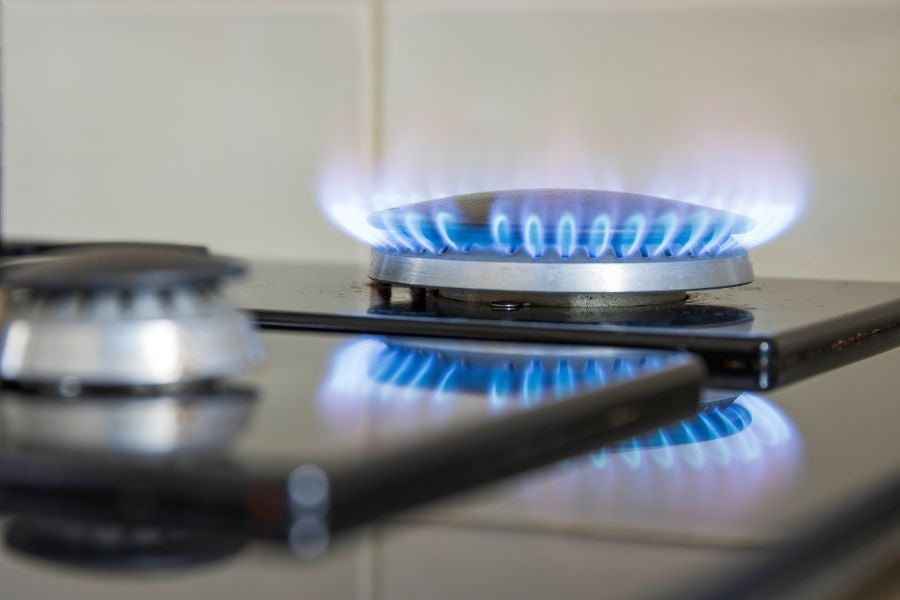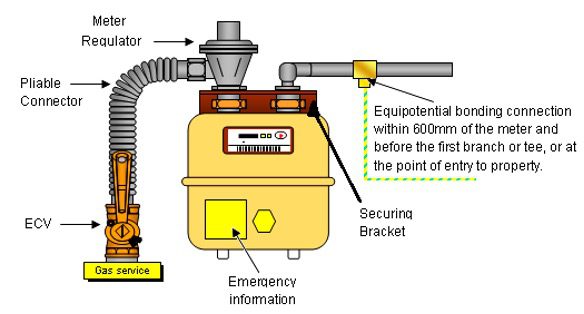Home maintenance advice
What To Do if You Smell Gas at Home
30 Oct 2020 • 7 minutes


We all know that gas leaks are a serious hazard, so if you smell gas in your property or suspect a gas leak follow our tips to help identify the problem.
What causes a gas leak?
How to detect a gas leak?
What to do if you smell gas?
How to prevent a gas leak
A gas leak in the home can be caused by poorly fitted, poorly maintained, or faulty gas appliances, such as a boiler or cooker. Gas leaks can also be caused by issues with gas pipework or the gas meter itself.
Gas appliances should be installed and serviced by suitably competent Gas Safe Registered engineers; failing to do this may result in a gas leak at home. Although you should always employ a professional to service your gas boiler, there are a few boiler maintenance tips you can follow to help make sure it stays in top condition.

There are many signs that you have a gas leak; the most tell-tale being the smell of gas in your home. Follow our useful checklist below to help you detect a gas leak in your property:
All gas appliances should have blue flames, as this means they have enough oxygen to burn efficiently. If you notice that they have turned orange or yellow then there may signal an issue and should be checked by a Gas Safe Registered engineer.
Natural gas has a chemical called mercaptan added making it easier to detect gas leaks. If you notice an unpleasant smell coming from a gas fitting, pipework or appliance, turn off the gas supply immediately and get some fresh air.
According to Gas Safe, in a gas emergency it is important to act quickly and take the following steps:
If you can smell gas or you think you may have a gas leak, call the National Gas Emergency Service Provider (ESP) from the outside of your property on 0800 111 999. The number is free and available 24 hours a day.
If the gas leak is coming from outside, it should be repaired free of charge. Contact the National Gas Emergency Services on 0800 111 999 to report the leak.
The first call engineer from the ESP will always perform a visual gas safety check when called to a suspected gas escape. However, the ESP under the terms of its licence doesn’t cover repairs to appliances or installation pipework.
Once the property has been made safe, the ESP will explain that any work on appliances (e.g. cookers, boilers or fires) will have to be carried out by a Gas Safe Registered engineer.
The gas Emergency Control Valve (ECV) is located alongside your gas meter. This is typically located outside in a meter box, however, it may also be found under the stairs, beneath the kitchen sink, or in the garage.

Once you’ve located your gas meter and turned off all gas appliances inside your home, you’ll then need to turn the gas ECV to the ‘off’ position. You’ll know it’s in the off position once it’s at a right angle to the pipe.

Poorly maintained, or incorrectly installed gas appliances and fittings can also produce an odourless gas. Consider installing carbon monoxide detectors in your home to detect CO leaks.
Carbon monoxide is a highly poisonous gas produced when carbon-based fuels such as gas, oil, and coal aren’t burned fully. It can be emitted from several places around the home such as gas stoves, fireplaces and hot water heaters. It’s best to place a carbon monoxide detector on each level of your home. These can typically be purchased from your local DIY store and should be designed and built to BS EN 50291 and display the BSI Kitemark.
If there are carbon monoxide emissions in your home there are six main symptoms of carbon monoxide poisoning to look out for:
If you believe you may be suffering from carbon monoxide poisoning:
If you show the symptoms listed above make your way to your local doctor or hospital as soon as you can – they can do a simple blood/breath test to confirm or dismiss your symptoms as carbon monoxide poisoning. Always follow the advice from the Gas Emergency Services.
There are a number of things you can do to prevent a gas leak:
Remember, you should only use gas appliances for their intended purpose. For example, a cooker must not be used to heat a room. Discover more gas safety tips here.
Regular maintenance and boiler inspections can not only help prevent gas leaks and reduce the risk of a breakdown, but can also prolong the life of your boiler.
Find out more information about booking an annual boiler service with HomeServe.
Our help & advice articles cover Plumbing, Home heating, Electrical, Energy-saving and Home maintenance.